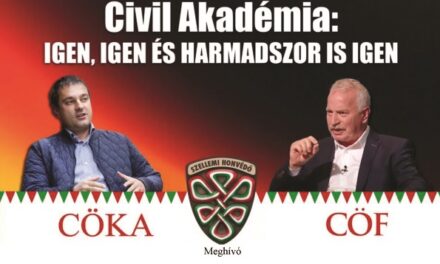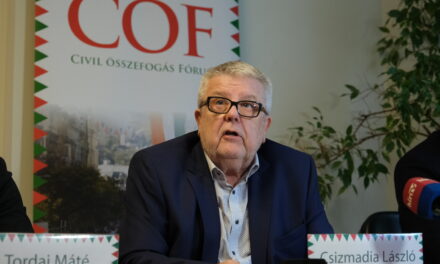Enlightenment-era scientist György Kalmár spoke of our sweet mother tongue as "more beautiful than precious stones". Ekes' expression is still true to this day, even eternally valid...
But the daily use of this signal system is less beautiful. Thus, for example, our rich set of synonyms, which offers plenty of selection possibilities, very often remains unexhausted... Among the resulting mistakes in writing and speaking - cases of monotony in expression - we can mention among the first the monotonous use of the fantastic adjective . This is one of the trite, gray buzzwords and expressions worn out to the point of contentlessness that have persisted in the use of the native language for years, even decades.
Dezső Kosztolányi, a writer who also excels as a language teacher, already in 1926 (!) deemed it obnoxious, found it bigoted, saying: "These days, this word is more and more common in front of us, without any reason." Referring to the boundless richness of our native language in lexemes with related meanings, he added: "I can write around with hundreds and hundreds of better and more accurate words." An increasingly timely thought.
Today, in its original meaning - 'invented, spent, born in the imagination, born of fantasy' - we come across the fantastic , the more often we use the words 'amazing, dazzling, brilliant, first-rate, excellent, great, extraordinary, etc.' in its meaning. In the latter sense, colloquial language - and the press, which acts on it with elemental force - applies it without restraint. Today's media mostly uses it to praise (deemed to be) significant achievements. In fact, he sometimes greatly exaggerates and magnifies the real value by using this adjective. Don't be surprised! Exaggerations and linguistic exaggerations are now almost "obligatory" linguistic elements of the media.
Mass communication is therefore particularly lazy in that the fantastic has now become a hazy gray buzzword. In a talent show, for example, in a fleeting half hour, it was uttered countless times as praise. Where are the synonyms? – we shake our heads after celebrity presenters apply fantastic Would the media put up with the fact that some of its tasks can be performed with - to put it euphemistically - a modest vocabulary?
If we were to read about science fiction that it was a " fantastic film", we could also accept the classification as a play on words (in other words: 'fantasy born', also a 'great' film), but if the press writes about a work inspired by an actual event - as it often does -, it is already misunderstanding. " fantastic ," we read about a work that is entirely based on reality. In such a case, we say what we mean: a great, first-rate, fascinating film " a fantastic book, which cannot be categorized as a romantic drama at all". In this communication, the consciousness of the reader itself - although he uses the fashion expression in question -: he has not completed a work with a science fiction theme. That is , interesting, exciting, thought-provoking, educational, etc. work gave him a special experience. "The birth of radio was a fantastic story," I read in an interview on the World Wide Web. Since such stories are very real, they are hardly characterized by the creation of an imaginary world that leaves the ground of real life, more precisely here e.g. this statement: "The birth of the radio an unusual (unique, sensational, etc.) story" (that can be left out, should be left out).
" A fantastic friend that you can always count on," we read on a website. It is not about Alf, the furry little extraterrestrial or ET, that the server of the laudatory epithet is enthusiastic about, but about a very real person. That is faithful, characterful, idealistic and loyal friend. " Fantastic mother and wife", they describe an American actress. We are referring to how good the artist is (also) in this (real) role when an exemplary, caring, considerate, tender, loving mother and wife. After all, this is not a fictional creature either. On the contrary: about a man who tirelessly cares for his children and his husband. " fantastic teachers," said one dancer. Since they were very much alive (dance) instructors, we can find more precise adjectives for the mentioned teachers: excellent, amazing, exceptional, great, extraordinary, masterful.
" The spectators witnessed a fantastic Have you seen a flying saucer? - may be asked by the reader who knows the original meaning of the word. No. The sentence refers to the fact that a player swam in the air and scissored the ball into the goal, i.e. the fans could see an extremely spectacular, attractive and attractive " fantastic victory," praises the media. We value our athletes in the same way, even when an impressive victory, a bravura success, a heroic triumph.
" Fantastic vocals" can also be expressed with more expressive words, such as sumptuous, brilliant, dazzling, wonderful . " fantastic primeval forests", is quoted verbatim from a traveller's documentary report. Kosztolányi would perhaps call that a lot novel , magical , enchanting , brilliant , breathtaking
frequent use of the word fantastic leads to the graying of language use As a result of its incessant repetition, it loses its effect more and more. And it can also cause misunderstanding. Therefore, referring to the meaning of the mentioned secondary meaning, we can boldly take from the dictionary - together with the recommended examples - the more Hungarian giddy, magnificent, phenomenal, fabulous, fairy tale-like, wonderful, awe-inspiring, astonishing, intriguing, special, overwhelming, inimitable, unique, rare, unsurpassed, enormous, phenomenal, colossal, brilliant . express approval and recognition more clearly and precisely than the fantastic Let's choose!
Author: Lajos Arany












